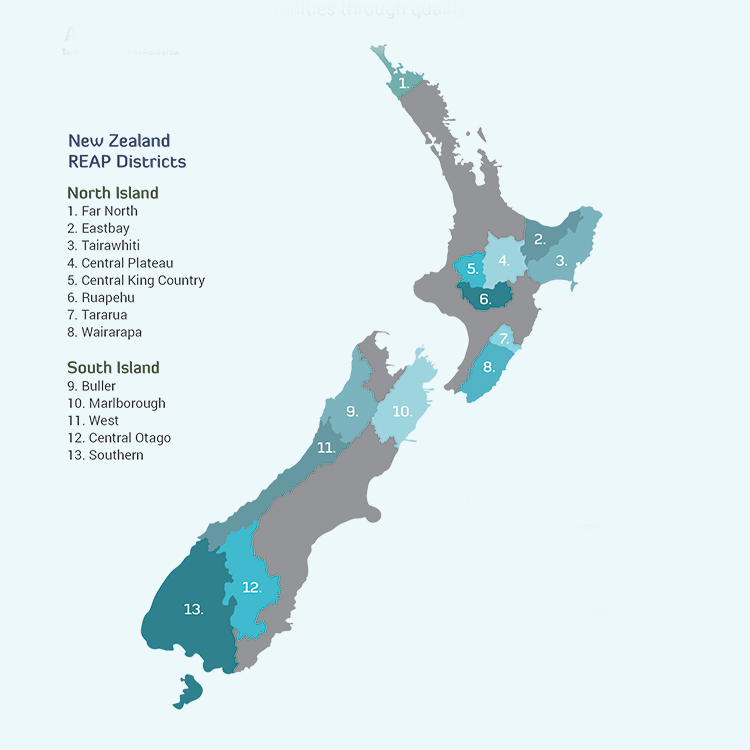REAPs: Small organisations making a big difference in rural communities
The old proverb “you reap what you sow” – where your future is shaped by your current actions and decisions – is especially relevant when it comes to education. Investing in education not only benefits an individual’s future, but communities too.
That’s why it’s important to have education services that are available no matter where you live or how old you are. Rural Education Activities Programmes (REAPs) play an important role in providing this sort of education.

But what are REAPs?
If you ask someone in downtown Auckland, Wellington, or Christchurch what a REAP is, you’re likely to get a puzzled and perhaps bemused look.
But if you ask someone living outside the big cities (such as Whakatane, Masterton, or Hokitika) the same question, the response is likely to be different. That’s because REAPs are important to these communities.
In the late 1970s, many young people were moving away from rural communities because they were not getting the education services they needed. In response, 13 REAPs were established throughout the country.
REAPs provide education and community services to people of all ages and stages (in other words, from twinkle to wrinkle). In this way, they are unique. No other country has a similar sort of organisation.
REAPs provide a range of different courses and programmes, including:
- early childhood and Kōhanga Reo education;
- injury prevention programmes for new parents;
- community playgroups;
- school holiday programmes;
- youth at risk programmes;
- learner and restricted driving courses;
- adult reading and writing courses; and
- adult te reo Māori courses.
If a learner wants to study a subject that their REAP doesn’t provide, the REAP can connect them with relevant teachers or topic experts.
REAPs also support local education providers and community organisations to develop their resources and capabilities.
Why are we interested in REAPs?
The 13 REAPs collectively spend almost $21 million every year, an amount that has been slowly increasing as REAPs expand the types of services they provide.
This level of funding comes with a few risks. REAPs are generally smaller organisations with relatively few staff. That’s why we look at the governance arrangements of each REAP during our annual audits, making sure that things like conflicts of interest and sensitive expenditure are managed well. If these types of issues aren’t managed well, they can cause significant harm to a REAP’s reputation.
It’s important that REAPs report on their performance
We’re also interested in whether REAPs are publicly reporting on their performance in an easy-to-understand way. Right now, it can be a bit difficult for communities to see what difference their REAP is making. Individual REAPs are not required to report on their performance through, for example, an annual report (though a few have chosen to).
There are many things that REAPs can report on, including whether they have:
- provided educational services that have benefited people of all ages and stages of learning; and
- how those educational services have benefited the community.
One of the Government’s objectives is to have a world-leading education system that gives every person the opportunity to fulfil their potential. We believe that REAPs need to show how they contribute to that objective by reporting on their performance in a clear and accessible way.
We think there needs to be clearer, possibly legislatively mandated, reporting requirements specifically for REAPs. This could help reduce the amount of unique and bespoke reporting that is happening in the sector and could improve parliamentary scrutiny of the important work that REAPs do.
REAPs are important to their communities, and they need to be able to show their impact for all learners in their communities. Planting a love of education in the community today can mean its culture and well-being flourish in the future.
